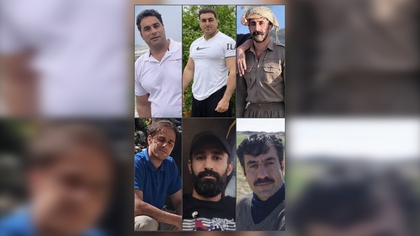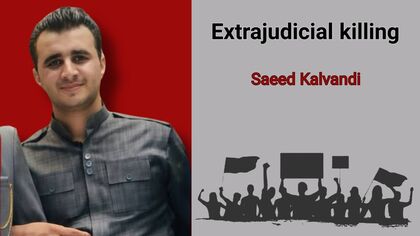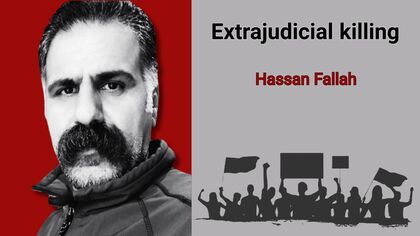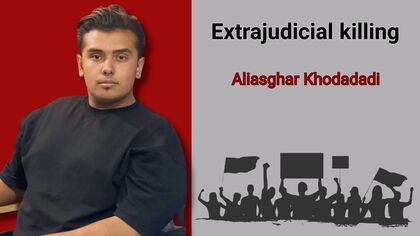Dr. Ahmed Shaheed: Silencing Journalist Voices, Signs of Worsening Human Rights Situation in Iran
22:58 - 9 June 2015
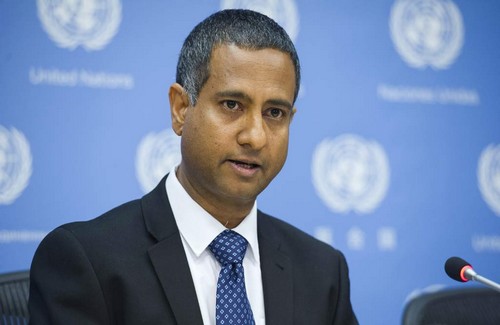
Kurdpa: The arbitrary and unlawful arrest and prosecution of journalists and activists in Iran weakens the protection of human rights of all in Iran, a United Nations Special Rapporteur for Human Rights in Iran, Ahmed Shaheed said on June 5.
“Silencing these critical voices is unacceptable – it undermines public debate and deprives Iranians and the rest of world of important information on the reality in the country,” declared UN Special Rapporteur, who is mandated by the UN Human Rights Council to monitor and report on the situation in Iran.
“The recurrent use of vague references to threats to national security, propaganda against the system and insult to authorities to prosecute and detain journalists or activists is in contradiction to both international norms relating to freedoms of expression and association and the principle of legality,” Mr. Shaheed stated.
The independent expert expressed special concern at the arrest, detention and trial of Jason Rezaian, a Washington Post reporter, and his wife, Yeganeh Salehi, a correspondent of the United Arab Emirates newspaper The National.
Mr. Rezaian’s trial began last week in Teheran behind closed doors on charges of ‘espionage, collaboration with hostile governments, gathering classified information and disseminating propaganda against the Islamic Republic.’ The journalist has been arbitrarily detained since July 2014, including for a number of months in solitary confinement, and wasn’t formally charged for nearly 10 months.
“Journalists must be protected, not harassed and prosecuted for doing their jobs. The detention and trial of Mr. Rezaian and Ms. Salehi not only violate their individual rights, but also intimidates those working in the media in Iran,” he stressed.
“Human rights defenders play a fundamental role in ensuring a democratic society which respects human rights,” the expert said, reminding the Iranian Government of its responsibility to ensure human rights defenders do not face prosecution for promoting and advancing human rights in the country.
In his previous reports, the Special Rapporteurs had highlighted the case of jailed journalists in Iran. He had stated that there were more than 35 independent journalists from various Iranian nationalities, imprisoned with long term sentences, including the Kurdpour brothers, Mohamad Sadigh Kaboudvand and Adnan Hasanpour are among the dozen imprisoned Kurdish journalists.
Dr. Ahmed Shaheed has also criticized the lack of usage of mother tongue in education system in Iran and its application in the Article 15 of the Constitution of the Islamic Republic of Iran that allows education in mother tongue alongside the country’s official language, Persian.
The Council, concluding its annual meeting in Geneva, renewed the mandate of the monitor, Ahmed Shaheed, for another year in March in a 20-11 vote, with 16 abstentions.
The Human Rights Council has renewed Dr. Shaheed’s mandate for fourth consecutive terms as the UN Special Rapporteur on the situation of human rights in the Islamic Republic of Iran.
Independent experts or special rapporteurs are appointed by the Geneva-based Human Rights Council to examine and report back on a country situation or a specific human rights theme. The positions are honorary and the experts are not UN staff, nor are they paid for their work.
Writing by Kurdpa Staff Writers and editing by Hazhir B. with information from UN Monitor.
“Silencing these critical voices is unacceptable – it undermines public debate and deprives Iranians and the rest of world of important information on the reality in the country,” declared UN Special Rapporteur, who is mandated by the UN Human Rights Council to monitor and report on the situation in Iran.
“The recurrent use of vague references to threats to national security, propaganda against the system and insult to authorities to prosecute and detain journalists or activists is in contradiction to both international norms relating to freedoms of expression and association and the principle of legality,” Mr. Shaheed stated.
The independent expert expressed special concern at the arrest, detention and trial of Jason Rezaian, a Washington Post reporter, and his wife, Yeganeh Salehi, a correspondent of the United Arab Emirates newspaper The National.
Mr. Rezaian’s trial began last week in Teheran behind closed doors on charges of ‘espionage, collaboration with hostile governments, gathering classified information and disseminating propaganda against the Islamic Republic.’ The journalist has been arbitrarily detained since July 2014, including for a number of months in solitary confinement, and wasn’t formally charged for nearly 10 months.
“Journalists must be protected, not harassed and prosecuted for doing their jobs. The detention and trial of Mr. Rezaian and Ms. Salehi not only violate their individual rights, but also intimidates those working in the media in Iran,” he stressed.
“Human rights defenders play a fundamental role in ensuring a democratic society which respects human rights,” the expert said, reminding the Iranian Government of its responsibility to ensure human rights defenders do not face prosecution for promoting and advancing human rights in the country.
In his previous reports, the Special Rapporteurs had highlighted the case of jailed journalists in Iran. He had stated that there were more than 35 independent journalists from various Iranian nationalities, imprisoned with long term sentences, including the Kurdpour brothers, Mohamad Sadigh Kaboudvand and Adnan Hasanpour are among the dozen imprisoned Kurdish journalists.
Dr. Ahmed Shaheed has also criticized the lack of usage of mother tongue in education system in Iran and its application in the Article 15 of the Constitution of the Islamic Republic of Iran that allows education in mother tongue alongside the country’s official language, Persian.
The Council, concluding its annual meeting in Geneva, renewed the mandate of the monitor, Ahmed Shaheed, for another year in March in a 20-11 vote, with 16 abstentions.
The Human Rights Council has renewed Dr. Shaheed’s mandate for fourth consecutive terms as the UN Special Rapporteur on the situation of human rights in the Islamic Republic of Iran.
Independent experts or special rapporteurs are appointed by the Geneva-based Human Rights Council to examine and report back on a country situation or a specific human rights theme. The positions are honorary and the experts are not UN staff, nor are they paid for their work.
Writing by Kurdpa Staff Writers and editing by Hazhir B. with information from UN Monitor.
